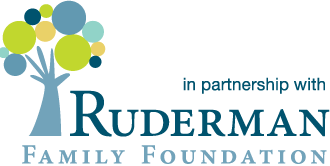Welcoming People with Disabilities: Laws Can’t Mandate Access to the Heart
02/29/2016
July 2015 marked the 25th anniversary of the signing of the Americans with Disabilities Act. The ADA, as it is commonly known, is the civil rights bill for people with disabilities. When I began my career at the Religious Action Center of Reform Judaism as its associate director in 1988, the ADA was one of the first major pieces of legislation that I worked on.
Little did I know that a decade later, I would sustain a Traumatic Brain Injury in a devastating car accident and the ADA would directly affect my life – but so it has. After my brain injury, the opportunity to return to work in a new capacity with accommodations to address my new disability affected my life in equally direct ways. Today, I serve as the RAC’s senior advisor on disability rights.
The Reform Jewish community and other national religious groups tirelessly advocated for passage of the ADA. Soon after it became law, however, I was surprised to learn that, due to last-minute political pressure from other religious groups, houses of worship were exempt from and therefore did not have to comply with significant portions of the law.
Without the law looking over their shoulders, most congregations were very slow to make necessary changes to their houses of worship. Synagogues, too, were among those reluctant to initiate changes – if not legal changes then moral ones, both physical and emotional.
The ADA mandates access to public buildings but, as I have long said, it cannot mandate access to the human heart. In the disability rights community, the old saying goes, “Before ramping buildings, you have to ramp attitudes.” And Elaine Hall, founder and creative director of the Miracle Project, says, “It may take a village to raise a child, but it takes a child with a disability to raise the consciousness of the village.”
In this, the 26th year of the ADA, it is my greatest wish that the wider Jewish community will vow to raise the consciousness of synagogues everywhere. I hope that when our congregations meet a child or adult with disabilities, their hearts and arms are not just wide open but are fully visible – evidenced by accessible buildings, programs, educational opportunities, leadership positions, social events, and more.
So, too, must our synagogues make every effort to hire people with disabilities for open congregational positions that match their talents. Jews with disabilities become rabbis, cantors, educators, and administrators, and qualified people with disabilities seek a variety of other positions at our congregations, too. Remember: Inclusion begins at home.
Our message must be that Jews who happen to have a disability want to worship, study, create within their own community, and contribute their all as full human beings – and they deserve to belong.
Ken yehe ratzon, may this be God’s will. May it be our will.
February is Jewish Disability Awareness and Inclusion Month, a unified initiative to raise disability awareness and support efforts to foster inclusion in Jewish communities worldwide. For important resources created by top disability experts, visit the Disabilities Inclusion Learning Center, created by the Union for Reform Judaism in partnership with the Ruderman Family Foundation.

